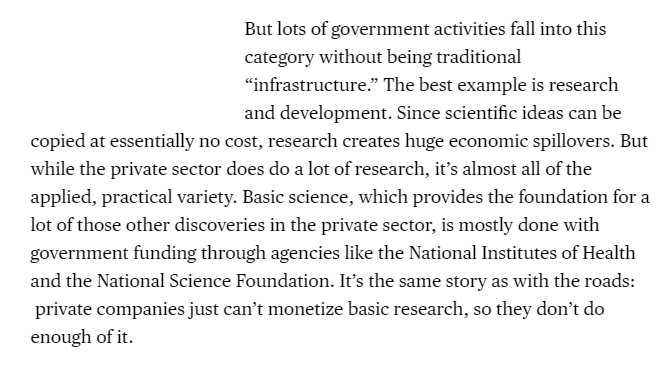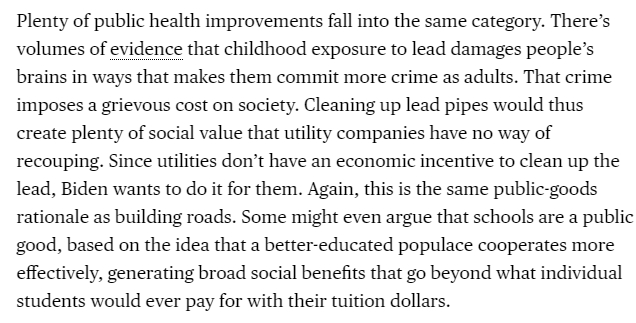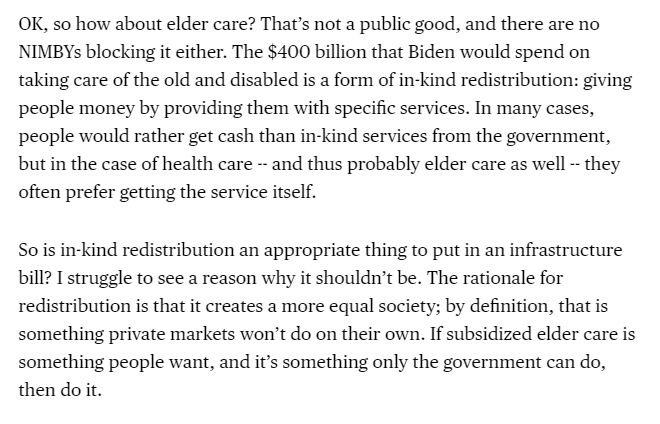1/Let's talk about why the debate over what constitutes "infrastructure" is pointless.
bloomberg.com/opinion/articl…
bloomberg.com/opinion/articl…
2/Opponents of Biden's bill are criticizing it for not being purely about roads and bridges. This is silly.
https://twitter.com/MarshaBlackburn/status/1379883470491680775?ref_src=twsrc%5Etfw%7Ctwcamp%5Etweetembed%7Ctwterm%5E1379883470491680775%7Ctwgr%5E%7Ctwcon%5Es1_&ref_url=https%3A%2F%2Fwww.bloomberg.com%2Fopinion%2Farticles%2F2021-04-09%2Fthe-meaning-of-infrastructure-is-a-pointless-debate
3/The reason the government spends money on infrastructure is a positive externality. Roads, bridges, etc. are things that the private sector won't build enough of if left to its own devices. 

4/But this same rationale applies to tons of stuff!
Take research, for example. The positive externality from research is even stronger than the one from roads!
Take research, for example. The positive externality from research is even stronger than the one from roads!

5/Cleaning up lead has huge positive externalities. Why not call that "infrastructure" too? It's the same rationale for spending. 

6/But externalities aren't the only reason for government to spend money building stuff.
For example, building housing is good because it cancels out the political power of local NIMBYs who block private-sector development.
For example, building housing is good because it cancels out the political power of local NIMBYs who block private-sector development.

8/In fact, there are lots of reasons to have the government build and buy stuff.
They don't all have to do with roads and bridges. So who cares? DO THE STUFF THAT NEEDS DOING. Everything else is noise.
(end)
bloomberg.com/opinion/articl…
They don't all have to do with roads and bridges. So who cares? DO THE STUFF THAT NEEDS DOING. Everything else is noise.
(end)
bloomberg.com/opinion/articl…
• • •
Missing some Tweet in this thread? You can try to
force a refresh










